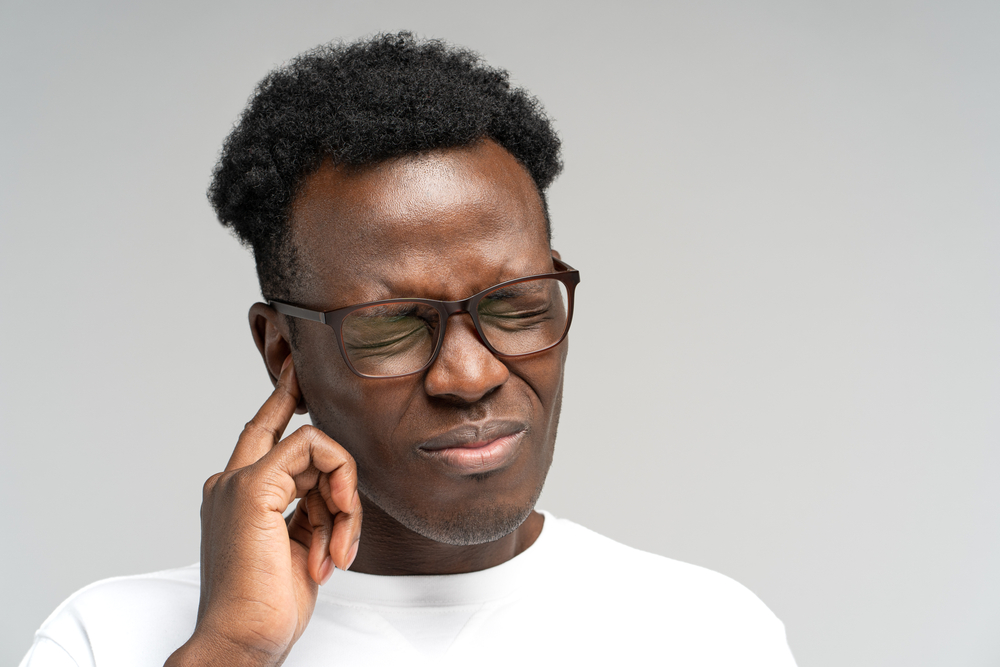You’re sitting in a meeting or watching a movie when it strikes, that maddening itch deep in your ear canal that no amount of discreet finger wiggling seems to satisfy. Most of us brush off these irritating episodes as random annoyances or blame them on errant hairs, water from showering, or seasonal allergies. But that persistent ear itch might actually be telling you something important about your immune system’s overall balance.
The ear-immune connection
Your ears are surprisingly complex immunological environments. The thin skin lining your ear canals contains specialized cells that form part of your body’s first-line immune defense. These cells, including Langerhans cells and various types of lymphocytes, are constantly monitoring for potential threats. When functioning properly, this local immune system maintains harmony with the natural microbiome of your ears.
What many people don’t realize is that this delicate ecosystem in your ears can mirror larger immune imbalances happening throughout your body. When your immune system becomes dysregulated, whether through heightened sensitivity or inappropriate responses, your ears may be among the first places to signal the problem.
The inflammatory cascade
Itchiness itself is closely tied to your immune function. When certain immune cells detect something they perceive as a threat, they release histamines and other inflammatory compounds. These chemicals trigger nerve endings in your skin to send itch signals to your brain. This reaction can happen anywhere on your body, but your ear canals are particularly sensitive due to their rich nerve supply and thin skin barrier.
In someone with a balanced immune system, this inflammatory response only activates when truly needed. But in people experiencing broader immune dysregulation, the threshold for triggering this cascade may be lowered, resulting in itching without any obvious external cause.
Microbial balance disrupted
Like your gut and skin, your ears maintain a delicate balance of microorganisms. When your immune system becomes imbalanced, it may incorrectly respond to these normally harmless residents, or it might fail to keep potentially problematic microbes in check.
This disruption can occur before you notice other symptoms of immune dysfunction. The confined space of the ear canal makes small changes more noticeable, creating that familiar itch long before other areas of your body display obvious signs of immune imbalance.
Beyond the obvious culprits
While external factors like wax buildup, water exposure, or foreign objects can certainly cause ear itching, persistent or recurrent itchiness without clear triggers warrants a closer look at potential immune factors.
Subtle food sensitivities
Many people experience immune reactions to foods without realizing the connection. Unlike immediate allergic responses, delayed sensitivities can manifest up to 72 hours after exposure, making the trigger difficult to identify. These reactions often appear first in sensitive areas like the ears, throat, and nasal passages.
The immune activation resulting from these sensitivities can create inflammation in seemingly unrelated body parts, including your ear canals. Common culprits include dairy, gluten, certain preservatives, and food colorings, though individual triggers vary widely.
Environmental immune triggers
Our modern environment exposes us to countless substances that can confuse immune function. From household chemicals to airborne pollutants, these exposures may trigger inappropriate immune responses that manifest as seemingly random symptoms, including itchy ears.
Stress-immune feedback loops
The connection between psychological stress and immune function is now well-established. When you’re under chronic stress, your body produces hormones that alter immune cell behavior, potentially lowering the threshold for inflammatory responses. This can translate to increased sensitivity and reactivity in areas rich with immune cells, such as your ear canals.
Medication side effects
Many medications, from antibiotics to blood pressure drugs, can influence immune function as a side effect. Some alter the microbiome throughout your body, including in your ears, while others directly affect immune cell behavior. If your ear itching began after starting a new medication, this connection is worth exploring.
From annoying to informative
Rather than merely treating the symptom, considering itchy ears as a potential early warning sign of immune imbalance provides an opportunity to address underlying issues before they progress to more serious problems.
Patterns tell stories
Pay attention to when your ear itching occurs. Does it happen after consuming certain foods? During high stress periods? In specific environments? These patterns can provide valuable clues about potential triggers.
Beyond ears alone
Take inventory of other subtle symptoms you might be experiencing. Minor digestive discomfort, occasional skin rashes, mild fatigue, or frequent throat clearing might seem unrelated but could connect to the same underlying immune dysregulation causing your ear itching.
Rebalancing approaches
Addressing potential immune imbalance often requires a multifaceted approach. Supporting gut health through probiotic-rich foods and fiber may help, as approximately 70% of your immune tissue resides in your digestive system. Reducing exposure to potential triggers, managing stress levels, and ensuring adequate sleep are equally important for immune regulation.
Anti-inflammatory dietary patterns emphasizing colorful vegetables, omega-3 rich foods, and minimal ultra-processed items provide the nutrients your immune system needs to function optimally. For some people, targeted supplements like vitamin D, zinc, or quercetin may help restore better immune balance when guided by healthcare providers.
When to seek professional guidance
While occasional ear itching is rarely cause for alarm, certain patterns warrant professional evaluation. Persistent itching lasting more than two weeks, itching accompanied by pain, discharge, hearing changes, or dizziness requires prompt medical attention to rule out more serious conditions.
For chronic or recurrent itching without other concerning symptoms, consider consulting healthcare providers familiar with functional or integrative approaches. These practitioners often look beyond symptomatic treatment to identify underlying immune dysregulation.
The overlooked opportunity
Most of us have been conditioned to view symptoms as nuisances to eliminate rather than messages to interpret. This is particularly true for seemingly minor irritations like itchy ears. We reach for ear drops or cotton swabs, seeking immediate relief without considering what our body might be trying to communicate.
By reframing these sensations as potential indicators of subtle immune imbalance, we gain an opportunity for early intervention. Rather than suppressing the symptom, we can use it as motivation to support better immune regulation throughout our body.
While not every case of itchy ears signals broader immune dysfunction, the connection is common enough to merit consideration, especially when the itching recurs without obvious external causes. By paying attention to this seemingly insignificant symptom, you might gain valuable insight into your body’s immune function before more troublesome issues develop.
The next time that maddening ear itch strikes, resist the urge to simply scratch it away. Instead, consider it a potential messenger from your immune system, inviting you to investigate possible imbalances and make supportive changes. That annoying sensation might actually be one of the earliest and most accessible warnings your body can offer about immune dysregulation brewing beneath the surface.















